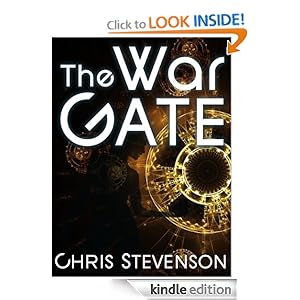I just went through a major structural edit on my most recent YA novel. I thought I had it pretty tight, seamless and moving at a fairly swift pace. Dudes, was I wrong. I seem to keep making the same mistakes over and over again. These are just a few examples that really stood out and caused some major problems. I had to cut 15 pages of text from this first, initial pass, and it's a very small book. There's more to come, I'm sure. But do any of you share these types of blunders? Pay heed and stop and think about them in your first revision. They somehow got by my in droves, much to my embarrassment.
I'm now convinced that if I don't stop blatantly foreshadowing every frickin' plot point in the novel and giving away everything before it happens, then I'll be sentenced to manuscripts full of red chicken scratch track changes for the rest of my life. I hope I've learned my lesson on this one. You can’t have a character think about, or plan what they’re going to do to solve a problem then have that character commit the act in the next scene, page or chapter. You see, you’ve already hinted or given it away. What’s the use? Use a red herring that whispers of an up-and-coming event, but leave it logically fragmented or incomplete somehow, at least enough to draw curiosity. Then, drop the bomb shell later on.
And, I better not catch myself going into an internal monologue or any other type of exposition or extended narrative smack in the middle of physical action scene. Nothing slows down an action sequence faster than interrupting it and trying to explain some nuance or reason for the conflict. This especially applies to character thoughts and motivation. Don’t underestimate your reader; they don’t need as much explanation as you think. Try to avoid blow-by-blow description—keep your fight or chase scenes open enough to reveal what else is happening nearby that is directly related to the scene. Huge battles that cover a lot of geographic territory and participants can be handled in tight 3rd or even Omni. Think of the battles and major wars in the Lord of Rings trilogy. The camera has to pull back to get everything covered—much like the writing would have to do. If you have a pitched fight between two characters, like in Rocky or Real Steel, then go ahead and try some blow by blow, but don’t overdo it.
Redundancy. OMG. Why must my last two or three sentences in a paragraph drive the same point across? What am I trying to do—craft a paragraph summary like in an article or a tiny novel? Who the hell ever heard of an epilog in a paragraph for gawd's sake? I got recently got smacked up-side the head for that one more than once. Here’s an example:
She studied
his eyes, looking for that inner light of recognition—that certain spark. It only took a microsecond to make the
determination. Nobody was home. He might have been fine as first impressions
went, like a trendy piece of clothing pulled off the rack. But once donned, it itched and felt
clunky. Candidate number two did not
look promising.
There is just no way that last sentence is needed. We
already know from the preceding words in the paragraph that this guy doesn’t
look good. Full ahead STOP, when you’ve made your point. I call this driving
the point home and I’m famous for this type of repetition—fluff that adds
nothing and takes up only white space. In fact, that certain spark is repetitious. Kill your darlings; knock out
prose that restates or repeats anything. Use a short, stark sentence to get
your meaning over and done with. Now, if you’ve been paying attention, you’ll
see that I’ve committed this blunder again in this very paragraph. Conclusion:
don’t write like me, hah!


